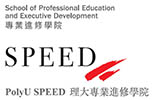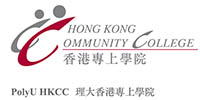雙語社評齊齊聽
[英語 (足本收聽)] Presented by Dr CHAN, Weng-kit Danny, Lecturer of Hong Kong Community College, The Hong Kong Polytechnic University
[普通話 (足本收聽)] Presented by Dr CHOI, Wai-yuk, Lecturer of Hong Kong Community College, The Hong Kong Polytechnic University
As Hong Kong embarks on its return to normality, the Chief Executive (CE) and several Secretaries of Departments and Directors of Bureaux have scheduled foreign visits over the next two months. Stressing Hong Kong's economic strategic value to Europe may serve as one of the SAR government's priorities in telling the good stories about Hong Kong.
As 2023 begins, many SAR government officials are "going global" to promote Hong Kong. Secretary for Labour and Welfare Chris Sun was the first to set off yesterday (4 January) to visit Singapore and the Philippines. Secretary for Commerce and Economic Development Algernon Yau will follow right after and visit Vietnam on Saturday. CE John Lee will visit four countries in the Middle East as soon as next month; he is expected to be accompanied by Secretary for Financial Services and the Treasury Christopher Hui. As for Financial Secretary Paul Chan, who took the lead in "exploring" the Middle East in November last year, he will attend the World Economic Forum in Davos, Switzerland at the end of this month and plans to visit Europe and ASEAN later this year.
These high-ranking officials are going abroad with different tasks. One of the key points of Chris Sun's visit to Singapore is to know more about their experience in recruiting talent from overseas. During Algernon Yau's visit to Vietnam, besides reaching the local business community, he is likely seeking the Vietnamese government's support for Hong Kong to join the Regional Comprehensive Economic Partnership Agreement (RCEP). The CE's delegation to the Middle East will be mainly about attracting investment and promoting financial cooperation. As for Paul Chan's attendance of the World Economic Forum, not only will it be about maintaining Hong Kong's "visibility" in the international economic arena, but also believably an opportunity that he will seize to explain Hong Kong's current situation to Western political and economic circles, and tell the world the good stories of Hong Kong.
There was a time when the US was Hong Kong's largest trading partner. However, since the mid-1980s, mainland China has become Hong Kong's largest trading partner. As of 2019, the European Union (EU) was still Hong Kong's second largest trading partner, but now ASEAN has taken this position and has also become the largest trading partner of the mainland. In this new era, Hong Kong is still a bridge between China and the world, but its nature has greatly differed from that of the last century. Rather than being a bridgehead for the West to promote its interests in China and Asia, it has now become a gateway for China to "go global". As global economic cooperation has become politicised and partisan, it is indeed more difficult for Hong Kong to have its bread buttered on both sides between the East and the West as in the past. Having diverse partners is the general trend, but the deep economic ties with the West Hong Kong has built over the years remain the city's important assets. Hong Kong opens its arms to the outside world. Making good use of its various advantages and capital in hand will benefit not only itself but also China.
Due to the pandemic, the number of EU companies stationed in Hong Kong declined from at least 2,200 before the pandemic to just more than 1,000 at one point. As Hong Kong and the mainland are heading towards normality, senior officials of the SAR government should seize the opportunity to actively promote economic cooperation with the EU, highlight the opportunities brought by the mainland's return to normality, as well as the advantages of Hong Kong as a gateway to the country so as to tell the good stories of Hong Kong.
推銷香港「食四方飯」 放眼亞洲不忘歐盟
香港重啟復常之路,行政長官與多名司局長未來兩個月都有外訪行程。突出香港對歐洲的經濟戰略價值,可以是特區政府說好香港故事的工作重點之一。
踏入2023年,特區政府多名官員都準備「走出去」推銷香港,勞福局長孫玉菡昨天率先動身,訪問新加坡及菲律賓,商經局長丘應樺緊接周六起訪問越南。行政長官李家超最快下月出訪中東4國,財經事務及庫務局長許正宇料將隨行;至於去年11月打頭陣往中東「探路」的財政司長陳茂波,則會出席本月底的瑞士達沃斯世界經濟論壇,並計劃今年稍後訪問歐洲及東盟。
眾高官外訪,各有不同任務。孫玉菡訪星,重點之一是了解海外招攬人才經驗。丘應樺訪問越南,除了接觸當地商界,相信亦會爭取越南政府支持香港加入區域全面經濟伙伴協定(RCEP)。特首率團訪問中東,則以招商引資及推動金融合作為主;陳茂波出席世界經濟論壇,除了保持香港在國際經濟舞台上的「能見度」,相信亦會把握機會,向西方政經界人士講解本港現况,說好香港故事。
曾幾何時,美國是香港最大貿易伙伴,惟自上世紀80年代中開始,香港最大貿易伙伴已變為內地。截至2019年,歐盟仍是香港第二大貿易伙伴,然而現在東盟已取而代之,兼且成為了內地最大貿易伙伴。新時代下的香港,仍是連接國家與世界的橋樑,但性質已跟上世紀大為不同,由作為西方伸張在華及亞洲利益的橋頭堡,變成國家面向全球「走出去」的門戶。隨着全球經濟合作變得政治化及陣營化,香港要像昔日般在東西方之間左右逢源,的確比以前困難,合作對象多元化,乃是大勢所趨,不過與西方的深厚經濟聯繫,始終是本港積累多年的重要本錢。香港「食四方飯」,善用手上各項優勢與本錢,不僅有益於己,亦可貢獻國家。
受疫情影響,歐盟企業進駐香港的數目亦有所下降,由疫前至少2200家,一度跌至1000多家,隨着香港及內地邁向復常,特區政府高官應把握機會,積極推動與歐盟經濟合作,突出內地復常所帶來的機遇,以及本港作為國家門戶的優勢,說好香港故事。
明報社評 2023.01.05






